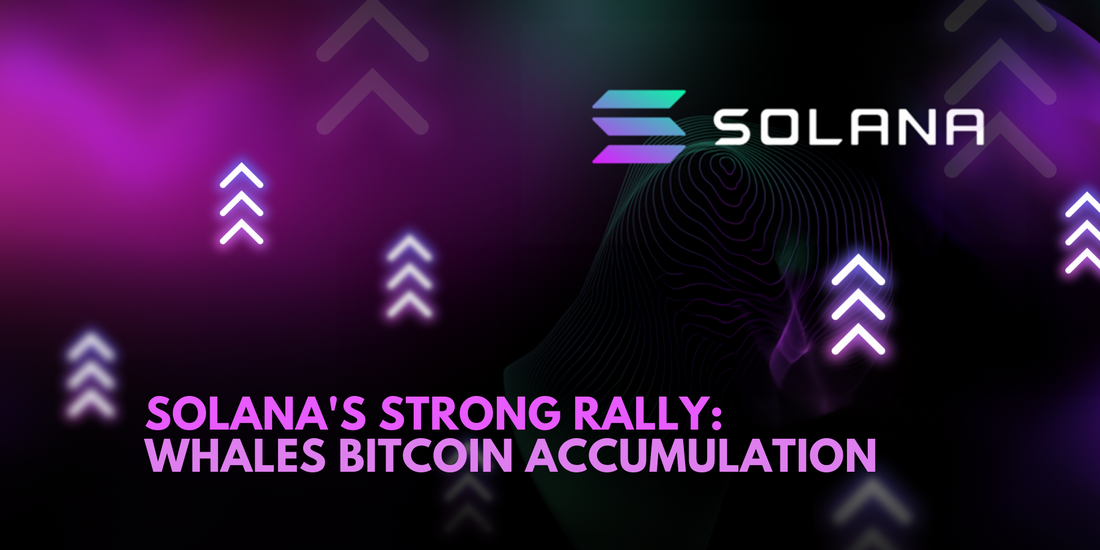In recent cryptocurrency market movements, Solana (SOL) has emerged as the top gainer in the list of the top 10 cryptocurrencies. Meanwhile, Bitcoin and Ether have remained relatively stable, even as Bitcoin whales have been actively accumulating the asset since August 25, according to industry experts.
Solana's SOL token experienced significant gains, rising by 2.38% in the past 24 hours to reach a price of $19.81. This upward momentum for SOL began after the protocol announced a groundbreaking partnership with payment giant Visa. Under this partnership, Visa plans to utilize the Solana blockchain as a settlement layer in its pilot program, offering enterprise-grade throughput at a minimal cost for Visa issuers and merchants. Additionally, Visa revealed that two prominent merchants, Worldpay Global and Nuvei, will be conducting pilot programs for USDC settlement payments on the Solana network, further enhancing the blockchain's utility.
In contrast, Bitcoin's price remained relatively unchanged during afternoon trading in Asia, hovering around $25,735. Interestingly, while Bitcoin's price exhibited stability, large holders, often referred to as 'whales,' have been steadily accumulating Bitcoin since August 25, as noted by Mike Ermolaev, the founder of blockchain PR firm Outset PR. Institutional investors with substantial resources and the capacity for long-term Bitcoin holdings are considered essential for supporting the cryptocurrency's growth. Ermolaev also highlighted that positive regulatory developments and the upcoming Bitcoin halving event in 2024 have the potential to drive a significant price increase for Bitcoin.
Turning to the world's second-largest cryptocurrency, Ether, it experienced a minor decline of 0.12% during afternoon trading in Asia, trading at $1,629. Over the past week, Ether's price has seen a 5.06% decline.
In the broader cryptocurrency market, the total market capitalization increased by 0.15% over the past 24 hours, reaching $1.04 trillion, while market volume also showed a modest 0.04% rise to $24.14 billion, according to CoinMarketCap data.
Shifting focus to the world of non-fungible tokens (NFTs), the Forkast 500 NFT index rose by 0.26% to 2,176.81 points in the 24-hour period, although it saw a 0.78% decline over the past week. Notably, following a 400% surge in sales for the Bored Ape Yacht Club, sales for its counterpart, the Mutant Ape Yacht Club, surged by 213% to reach $762,915 in 24-hour sales volume. This makes it the third-largest NFT collection across all blockchains by 24-hour sales volume.
The NFT space's continued growth was further evident with Ethereum's 24-hour NFT sales increasing by 32.74% to $6.62 million. Sales for Milady Maker also experienced a substantial surge of 596% to reach $287,012.
In the wider financial landscape, major Asian equities, including Hong Kong's Hang Seng Index, the Shanghai Composite, and Japan's Nikkei 225, registered gains, except for the Shenzhen Component, as of 4:30 p.m. in Hong Kong. However, China's yuan faced pressure, falling to a 10-month low against the U.S. dollar. The People's Bank of China intervened to support the yuan and prevent further depreciation by selling U.S. dollars and absorbing yuan liquidity.
In the United States, major stock futures, including Dow Jones Industrial Average futures, the S&P 500 futures index, and the Nasdaq-100 futures, witnessed declines following hawkish comments from Fed Bank of Cleveland President Loretta Mester. Mester hinted at the possibility of higher interest rates but did not specify upcoming actions. Meanwhile, European markets, represented by the STOXX 600 and Frankfurt's DAX 40, also experienced declines. This followed cautious remarks from European Central Bank official Klaas Knot, who suggested that traders might be underestimating the likelihood of an interest rate increase and emphasized the importance of achieving the central bank's inflation target by 2025.
Additionally, German industrial orders faced a steep decline of 11.7% in July, surpassing expectations of a 4.3% decline, marking the sharpest drop since April 2020, in the aftermath of the COVID-19 outbreak.

